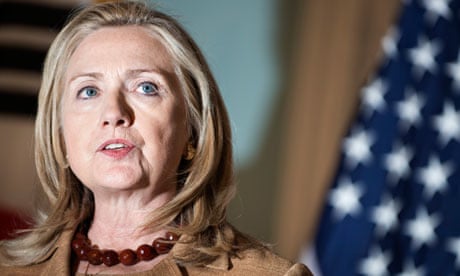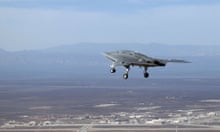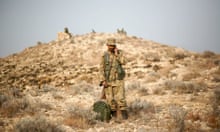Pakistan has agreed to allow US forces to reopen supply lines across its border into Afghanistan, ending a seven-month dispute that had strained relations between Washington and Islamabad.
The agreement followed an apology issued by the US secretary of state, Hillary Clinton, for the killing in November of 24 Pakistani troops in a Nato air strike. That incident came on top of growing protests from Pakistan over drone attacks and infringements of Pakistan's sovereignty.
Clinton and the Pakistan foreign minister Hina Rabbani Khar reached the agreement in a phone call on Tuesday. Although the US apology is similar to one issued at the time of the November attack, it allows Pakistan to portray Washington as having climbed down first.
The reopening of the border will help the US and other Nato forces as they pull out forces and heavy equipment in the run-up to the handover of responsibility for combat duties to the Afghan government.
The closure had soured relations that had already been strained. With the US unable to supply forces in Afghanistan through Pakistan, Russia offered to help facilitate routes through Afghanistan's northern border. Although the US used these northern routes, they were slow and costly.
Washington became particularly incensed when Pakistan proposed reopening the supply lines but charging what the US regarded as new and exorbitant charges for each load crossing the border.
The state department said Clinton had offered sincere condolences to Khar over the deaths.
Clinton said: "I once again reiterated our deepest regrets for the tragic incident in Salala last November. I offered our sincere condolences to the families of the Pakistani soldiers who lost their lives. Foreign Minister Khar and I acknowledged the mistakes that resulted in the loss of Pakistani military lives.
"We are sorry for the losses suffered by the Pakistani military. We are committed to working closely with Pakistan and Afghanistan to prevent this from ever happening again," she said.
Although Pakistan and the US are nominally allies, the two have been repeatedly at odds over the past decade. Washington has accused Islamabad of not doing enough to rein in terrorist groups operating inside its border, in particular the Taliban and related organisations such as the Haqqani group.
The discovery that the al-Qaida leader Osama bin Laden was hiding in Pakistan further eroded relations. Pakistan had repeatedly denied he was in the country.
The closure has seen repeated diplomatic moves, with a string of senior American diplomats visiting Pakistan to try to resolve the issue. There were repeated reports – which proved to be premature – that the standoff had ended.
Clinton, in her statement, said she had told the foreign minister that Washington respected Pakistan sovereignty and they had a mutual interest in working together.
She said: "In today's phone call, Foreign Minister Khar and I talked about the importance of taking coordinated action against terrorists who threaten Pakistan, the United States, and the region; of supporting Afghanistan's security, stability, and efforts towards reconciliation; and of continuing to work together to advance the many other shared interests we have, from increasing trade and investment to strengthening our people-to-people ties."
On the closure, she said: "I am pleased that Foreign Minister Khar has informed me that the ground supply lines (GLOC) into Afghanistan are opening.
Pakistan will continue not to charge any transit fee in the larger interest of peace and security in Afghanistan and the region.
"This is a tangible demonstration of Pakistan's support for a secure, peaceful, and prosperous Afghanistan and our shared objectives in the region. This will also help the United States and ISAF conduct the planned drawdown at a much lower cost. This is critically important to the men and women who are fighting terrorism and extremism in Afghanistan."




